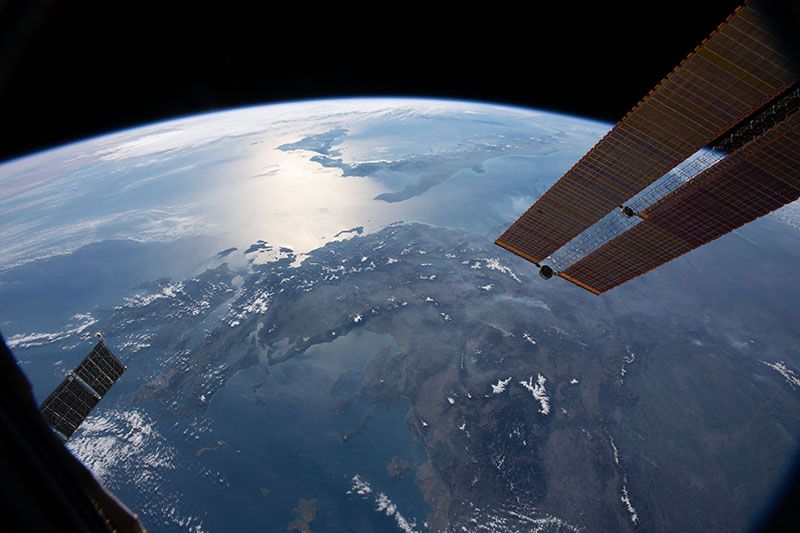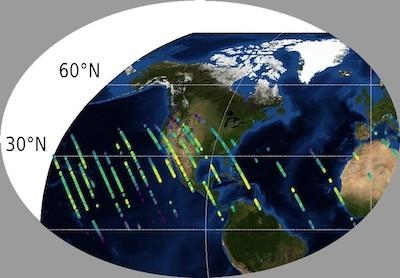NASA’s Orbiting Carbon Observatory 3 Has Just Transmitted Its First Images With Earth

On June 25th, NASA’s Orbiting Carbon Observatory 3 transmitted its first images of Earth and the light from the Sun that was reflecting on our planet’s surface. After a few weeks, the observatory sent the primary data of the level of carbon dioxide on Earth.
What is the Orbiting Carbon Observatory 3?
The Orbiting Carbon Observatory 3 is an observatory built by NASA’s Jet Propulsion Laboratory. Its objective is to assess the level of carbon dioxide in the atmosphere of Earth. On May 4th the Observatory was sent into space with the help of SpaceX’s CRS-17 (Commercial Resupply Service) and was installed on the Japanese Experiment Module-Exposed Facility from the International Space Station. The Orbiting Carbon Observatory 3 was pieced together utilizing extra parts from the Orbiting Carbon Observatory 2.
The carbon dioxide data transmitted by OCO-3 will help scientists to make sense of the CO2 emissions all over the planet derived from human activities. The Orbiting Carbon Observatory 3 is also supposed to calculate the Solar Induced Fluorescence. The Solar Induced Fluorescence focuses on the radiance plants emanate when they take CO2 from the atmosphere, also known as photosynthesis.
NASA’s Orbiting Carbon Observatory 3 (OCO-3) shared first images with Earth
Since it started operating, OCO-3 has captured images of areas of the world with less vegetation and regions in which the vegetation thrives. The areas in which there is a low variety of vegetation were captured in light green, while the other areas, with an abundance of vegetation, in dark green. This data shows how much photosynthesis activity is in these regions.
OCO-3 can also measure the quantity of carbon dioxide that emanates from Earth and how it oscillates through the whole day. The Orbiting Carbon Observatory 3’s information will be used in combination with data from ECOSTRESS (Ecosystem Spaceborne Thermal Radiometer Experiment on Space Station), which checks plants’ temperature, and GEDI (Global Ecosystem Dynamics Investigation lidar) which assesses the effects of deforestation on the CO2 levels in the atmosphere.

0 comments